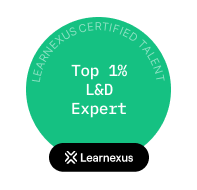 Alfie Kohn is one of my favorite contemporary educators. For the past 6 years he has challenged my conceptions about the purpose of education and the practice of teaching, particularly in relation to EdTech. After reading his recent post I found almost all of my sentiments mirrored in his commentary. I've highlighted a few key quotes below with some additional thoughts. "Despite corporate-style declarations about the benefits of “innovation” and “disruption,” new forms of technology in the classroom mesh quite comfortably with an old-school model that consists of pouring a bunch o’ facts into empty receptacles." As in many technology-related fields, the terms 'innovation' and 'disruption' are used ad nauseam in EdTech circles. Although I am a younger practitioner, I have already become cynical about the use of technology for education. Partially because every new product is labeled as some kind of 'game-changer.' In most cases, these 'innovations' do little more than help us do the wrong things more efficiently, more often, and in more places. I am reminded of the banking model of education, but for the 21st Century. Even the late Jerry Bracey never imagined things could get this bad when he referred to how we were developing the capability “to do in nanoseconds things that we shouldn’t be doing at all.” Imagine an accounting firm that needed help fixing a complex spreadsheet formula and workflow issues. Now, imagine that the popular solution to this problem setting up a virtual reality (VR) simulation of the accounting office where employees can log into from home using their company provided Oculus Rift. The VR program allows them to interact naturally with the digital office environment using motion capture technology and eye tracking. They can even use a recreation of their computer to complete their accounting tasks using the same spreadsheet that used at work. It integrates with the existing 'real life' systems and even updates in real time! Obviously we haven't fixed the problem. Nor has the situation been improved by cutting-edge technology. All we have done is to create yet another iterative platform from which the same erroneous practices and systemic problems can be expressed. Yet, this seems to be the type of approach we take to solving pedagogical problems using EdTech. Just look back to how iPads were going to "change everything" in 2010-12. All we have done is to create yet another iterative platform from which the same erroneous practices and systemic problems can be expressed. These are shiny things that distract us from rethinking our approach to learning and reassure us that we’re already being innovative. Consumerism is surely the pervasive ideology in American culture, and education professionals are infrequently exempt from its draw. The illusion of progress is everywhere: virtual reality, 3D printers, home-delivery drones, smartphone apps that analyze our bowel movements and recommend dietary changes, billboards that read information from our smartphones and provide us with an unsolicited, highly personalized advertisement. Things are getting better! Innovation! There are certainly more advancements in technology - but is access getting better? Do we really think that schools which can't afford air conditioning systems are going to be able to outfit every student with a virtual reality headset? Perhaps all we are doing is creating a new technological apartheid between the haves and the have-nots. Even for those who are blessed with cutting edge technologies, they unfortunately aren't using them to liberate learning. In the case of the iPad, it became little more than a battery-powered replacement for was already being used by teachers - the medium has changed but the message has stayed the same. These 'shiny things' give us hope for the future, but not a means to attain it. In the end, the technology becomes little more than a status symbol. the medium has changed but the message has stayed the same. Show me something that helps kids create, design, produce, construct — and I’m on board. Show me something that helps them make things collaboratively (rather than just on their own), and I’m even more interested Kohn goes on to distinguish two terms and concepts in regard to more 'individualized' learning: Personalized Learning: involves adjusting the difficulty level of prefabricated skills-based exercises based on students’ test scores Personal Learning: involves working with each student to create projects of intellectual discovery that reflect his or her unique needs and interests The former concept continues to perpetuate the problem of treating students as clay to be molded, rather than autonomous individuals with agency. It continues to baffle me that in spite of all of the external demands for a diverse and critically thinking labor force that we figure the best way to achieve that goal is to create flexible systems which aims to ensure that every student learns and achieves exactly the same things at the same time according to the same standards. This isn't what we know is right about human learning. It seems to be about about reinforcing a process and means of assessment that provides nice little graphs for administrators and legislators to justify their decisions - "We can't create adaptive learners, so lets create adaptive learning systems!" Unsurprisingly, the latter concept I am a bigger fan of. The moral approach here is to treat human beings as human beings, not as data points, not as problems to be solved. These are people with unique backgrounds and skill sets, different needs, wants, desires, and interests. We should embrace that diversity, not work to extinguish it. Personal learning also addresses our '21st century*' labor needs which rightfully include the ability to do REAL problem solving, to think critically, and to work collaboratively. It avoids the problem of a massive workforce with little diversity in skill at a time when we need increased diversity in skill to address the mounting problems here in the United States and the world at large. This isn't to say that I think education is about workforce training, but I do think is has a clear relationship to it. While I will not argue that there are basic, fundamental skills that every student should know, I will say its a much, much shorter list than currently exists - and much more meaningful under the personal learning paradigm. We should be outfitting our students with technology to encourage them embark on their own learning paths. Not using it to coerce them into the crumbling infrastructure of last century's education models. I can use a pen to write great literature, or I can use it to stab someone in the arm. Technology is a tool to be used for good or for ill, it depends on us to make its decisions. For every EdTech project that we take on the future we need to ask how it will help liberate student learning and avoid recreating our past failures. *21st Century, First World We can't create adaptive learners, so lets create adaptive learning systems!
0 Comments
|
AuthorCameron Wills is another guy with ideas and opinions. Half-baked concepts with incremental improvements go here. Archives
January 2022
Categories |
Photo from wuestenigel

 RSS Feed
RSS Feed
